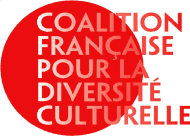The French Coalition for Cultural Diversity expresses its deep concern about the direction taken by the European Commission in the third version of the draft Code of Practice on Artificial Intelligence (AI).
Although the European Union has committed to establishing an ambitious and balanced framework for the development of AI—notably through the recent adoption of the Regulation on Artificial Intelligence (AI Act)—the current version of the Code of Practice marks a worrying turnaround.
This text no longer guarantees effective respect for copyright, which is nevertheless enshrined in European law, particularly in the Directive on Copyright in the Digital Single Market. It dangerously weakens the strict obligations to respect intellectual property rules, turning them into simple commitments to make one’s best efforts to comply with them. More generally, it paves the way for minimalist interpretations, or even for circumvention of the obligations contained in the European regulation, particularly with regard to transparency on training data and the implementation of policies ensuring compliance with intellectual property rules within AI services.
Under the guise of a proactive and non-binding approach, the latest versions of the text reflect a worrying renunciation of the defence of copyright, yet a fundamental pillar of creation, cultural diversity and the European creative economy.
Copyright is not an obstacle to innovation, but an essential condition for ethical technological development that respects artists, authors, producers, publishers, cultural professionals and European cultural diversity.
By weakening this foundation, the Commission would risk upsetting the delicate balance. It could also encourage the massive, opaque and illegal exploitation of protected works, as the recent example of the use by Open AI of the works of Studio Ghibli once again demonstrates the use of protected works to train AI services without the authorisation of the rights holders.
The Coalition calls on the European Commission to review its draft without delay and on the French authorities to act forcefully and clearly to reorient European discussions around this Code of Practice. To be useful, the text must reconnect with the ambition of making Europe a space for responsible and regulated innovation as well as a land conducive to human creation.
